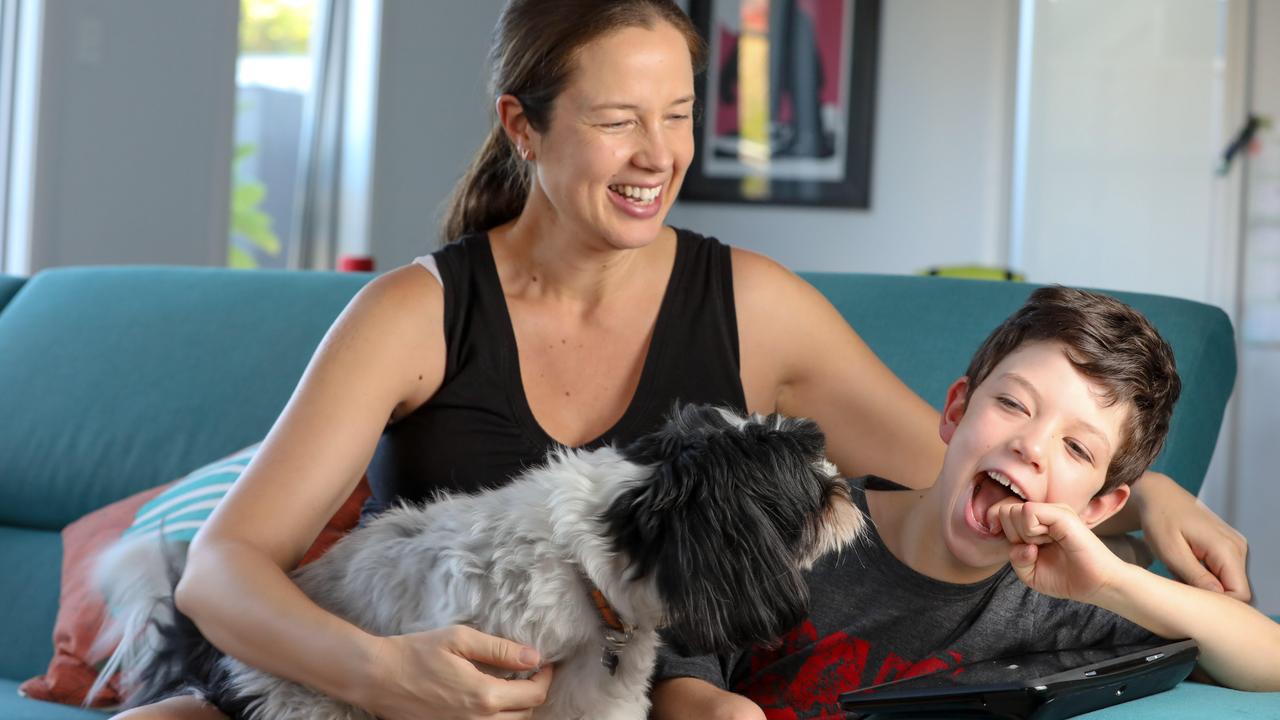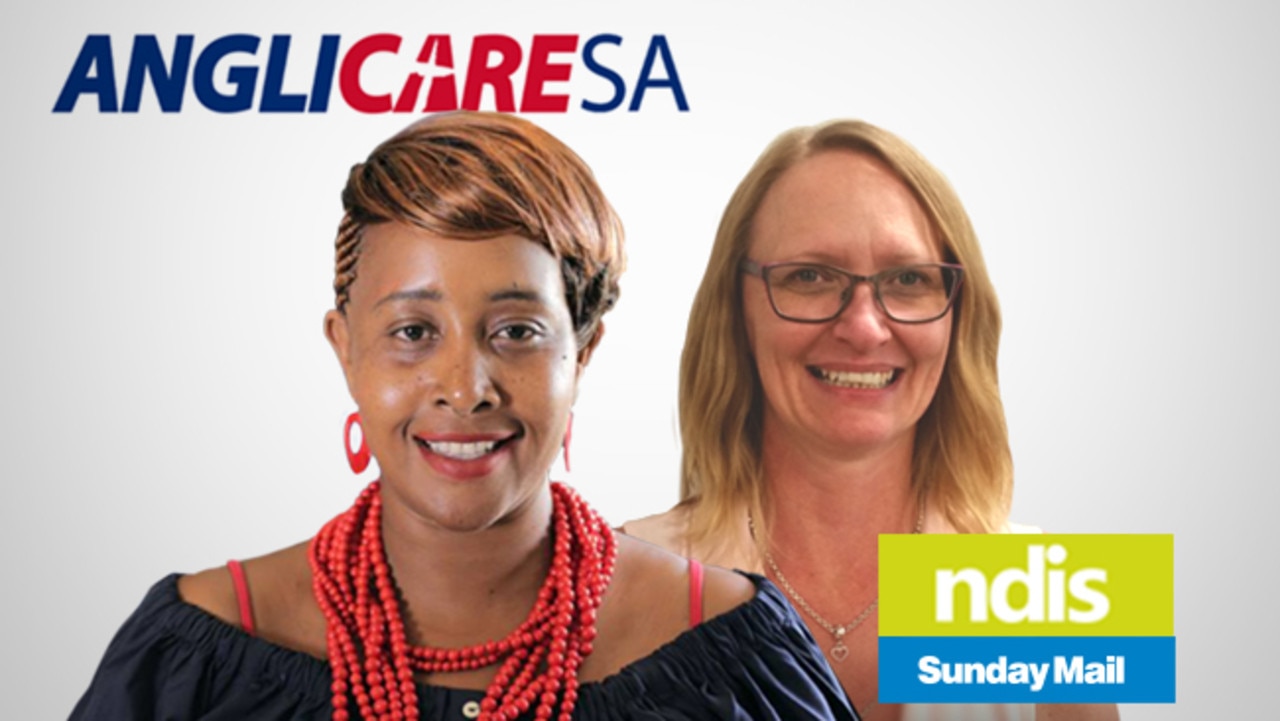Former Dignity Party MP Kelly Vincent on her eight years in Parliament and the future
SHE may not have been re-elected to Parliament in March, but after eight years Kelly Vincent still has plenty of wisdom to impart on life, the NDIS universe, and everything.
AT just 29 years of age, Dignity Party MLC Kelly Vincent is departing State Parliament having garnered a unique perspective on how North Tce does business and the inception of the National Disability Insurance Scheme in SA.
She is still the youngest woman ever elected to an Australian parliament and the first to be elected on the platform of disability rights. Vincent, who has spastic cerebral palsy, continues to advocate passionately for the rights and needs of people with disabilities and agreed to answer our questions about her experiences and what the future holds.
Q: Have there been any major changes to accessibility for people with disabilities to transport (public and private) during your time in Parliament? Is it likely the SA Transport Subsidy Scheme (SATSS) can be extended beyond its expiry date of mid 2019?
A: Each year I’ve been in Parliament, accessibility has gradually increased, in terms of the overall fleet. However, that can vary quite wildly depending on who’s operating each bus line. You can have fleets that have up to 90 per cent accessibility and then some more around the 60-70 per cent mark, and that’s a big part of the problem. I recently have been very vocal in advocating for replacing the fleet with things like kneeling buses – the ones that can drop down to the kerb. It’s not just about people in wheelchairs, it’s people with prams or knee issues or whatever.
Then there’s the tram, which is reasonably accessible, but the City South tram stop (near Halifax St) does remain inaccessible. It’s so narrow that drivers are told they are not allowed to deploy the ramp there. There was some funding allocated two budgets ago to modify that but that work still hasn’t begun. It’s frustrating the new works have overridden that … and the needs of people with disabilities are getting sidelined.
We have also lobbied very hard to get the SATSS vouchers until at least June 30, 2019, because we know a lot of people were having their vouchers taken away even though they weren’t on the NDIS yet. There’s no word on what might happen with SATSS after 2019. I’m hopeful the new government will see sense because we need that flexibility, just like anyone else does. Transport is such a vital part of life, particularly for people who can’t drive or catch public transport or maybe there’s no public transport available in their area.
There’s also the issue of trains, which are quite accessible but, when the lines are down, say for electrification or new works, they are replaced by buses that are from the older fleets and therefore aren’t accessible.

Q: Do you believe people with disabilities have gained better access to the community, employment and capacity building, particularly as part of the NDIS?
A: I think it’s fair to say that, where the NDIS is working, it’s working really well but, when it’s not working, it’s disastrous. I guess, being an MP, people don’t call you to tell you that everything is going fine, so you tend to hear a lot more of the negative stories. We still hear, broadly speaking, a lot of confusion about what the funding is for, which pockets of funding are for which things, how do people go about spending their funding, getting support to find providers, organising things. Under the old scheme, as problematic as it was, you didn’t have to think about that. You just got the service provider you were allocated. So even though the choice and control is great in concept, it’s very challenging in practice.
Q: What have been the pros and cons of the NDIS and what feedback have you been getting from constituents?
A: The good: It’s particularly, when you hear about younger people and kids, when they have the right support in school for the first time and they’re getting skills they might have otherwise not developed. And when you hear of people who are able to go out in the community and participate in events with the right support around them for the first time. That’s really positive and that’s what it’s all about, helping people to lead lives of their own choosing without all those unnecessary barriers around them. Early investment in people is really important.
The bad: One example is a woman and her 13-year-old son and the issues they are having accessing equipment, like the augmented communication gear her son needs because of his severe cerebral palsy. He needs very significant support to do everything, although he’s incredibly bright – he won a poetry competition at school. You worry about those talents being squandered because he’s not getting the support. His mum is very well educated but, if she’s having problems, given the incredible advocate she is, it shows you the difficulties the people who aren’t good at advocating may have. They’ve been waiting for more than two years for approval of vehicle modifications. It’s precisely what we are meant to be getting away from and it’s so frustrating. He’s had the same issue with wheelchairs and communication systems. They’re not making decisions and quotes for equipment are getting out of date.
We also gave the NDIA some feedback about extending their phone line hours because a lot of parents of NDIS participants don’t have time to call up during the working day, so they did that but, when people were calling at 6 o’clock at night to talk about their child’s plan, they were being told, “I’m not qualified to deal with that, you’ll have to call back at 9 o’clock tomorrow morning”. What is the point?
The way the NDIA has been communicating lately has been very user-unfriendly. They put out a press release saying they were going to improve their communications, and even I as a fairly literate person had read it about three times before I was confident I knew what they were saying. If you have little formal schooling or cognitive disability, how are you meant to understand it? People are getting letters from the NDIS and needing help to interpret them.
.


Q: Is the state government interacting well enough with the NDIA to make sure people are not falling through the gaps?
A: No, I don’t think the handover has been adequate or well managed. Look at the fact that pretty much all money for disability services in this state has been handed over to the NDIA, regardless of nuances like the SATSS situation where people’s supports were taken away before they got into the NDIS.
The Centre for Disability Health at Modbury – a specialist centre providing health care to people with disabilities – that centre’s funding was also handed over to the NDIA. The NDIA wouldn’t fund it and we had to lobby to get them new funding for the next few years. So there’s all these kind of nuances the State Government hasn’t taken into account.
I also think the fact my office has generated more than 50 per cent of NDIS-related complaints, shows not everybody is carrying their weight here. I could be wrong but I don’t think state government representatives have any regular catch-ups with the NDIA in the way my office has. I think that really needs to be established.
They’ve also defunded a lot of community-based mental health programs because they say the NDIS has psycho-social disability in its operations, so the NDIS can deal with this now. But there are going to be about 5000 people from those community programs who will fall through the gaps in SA, who had been travelling along quite well without formal treatment. All those programs risk losing their funding because of the NDIS.
Q: Has the Disability Inclusion Bill made it into law?
A: No, it didn’t pass the Parliament. Part of the reason was that we were trying hard to negotiate with the Government to give the Bill some actual substance. My big concern was, it’s all very well to mandate that organisations and councils have disability inclusion plans but we see documents that just gather dust. We were trying to negotiate to make sure there were some consequences around follow-up and actioning of those plans, because I think disabled people and their families have received quite enough lip service in the past. But we were unsuccessful with that before the election. I’m hopeful the new Government will be willing to reintroduce a Bill that has some substance to it.

Q: Can you reflect on your time in Parliament and what you’ve enjoyed and been frustrated by?
A: The things I’ve enjoyed are things like the Disability Justice Plan, where we’ve gone from having people with disabilities unable to communicate in court because of the regimented way in which evidence is collected, to now being a national leader in providing alternative methods for communication for witnesses, victims and offenders in court.
Also putting universal design standards into law. There are seven basic principles but essentially it’s about designing things from the get-go to take all users into account. As part of the once-in-a-generation state planning law reform, we had universal design principles inserted in that legislation, which is an Australian first.
I’m frustrated that it’s still something of a novelty to have young people, particularly young women, in Parliament and that we are judged by different standards to men. From the youth perspective, particularly in the early days, it wasn’t uncommon to get comments saying, “Who’s telling you to say this?”. There was no way you could possibly have your own opinions or views.
I’m also frustrated that Parliament remains a very unfriendly place, with the sitting hours, particularly for people with families. Also the judgments that were passed on me in terms of my disability. It doesn’t just happen to me, it happens to all people with disabilities.
Lastly, it’s the way in which the Parliament remains so adversarial and how much that adds to people’s disengagement. It makes people feel disillusioned and like they can’t participate and their voice has no value.
One of the things I have been frustrated by but also enjoyed is that you have to negotiate to get your points across the line, and in so doing you might just find different perspectives or different ways of working that you wouldn’t have thought of on your own. We are working on behalf of the community and people don’t have a standard point of view, so we need lots of perspectives on every issue.
Q: What does the immediate future hold for you and what plans and goals do you have?
A: The election was (just over two months ago) so I’m not going to pretend I have my entire life sorted out yet. My values and drives and passions haven’t changed so I hope to stay around in advocacy in some way or another. I’m trying to program myself to enjoy not knowing, which is very difficult for me, as my partner can attest to very well. I have a few public speaking opportunities lined up and I’m looking forward to assisting the community in whatever way I can.


